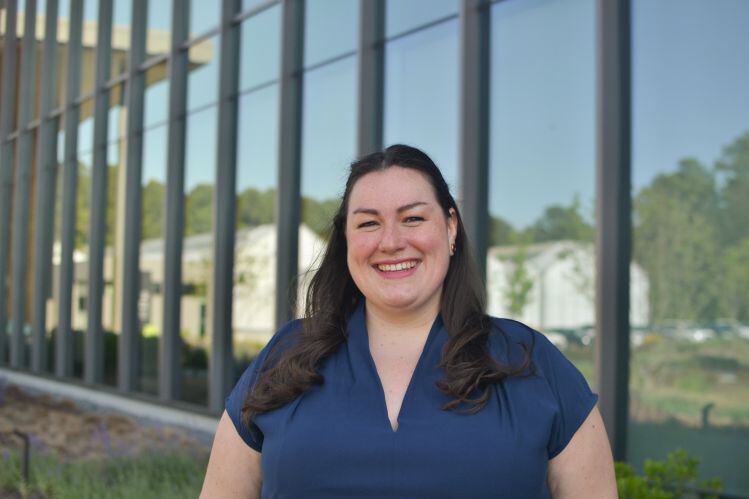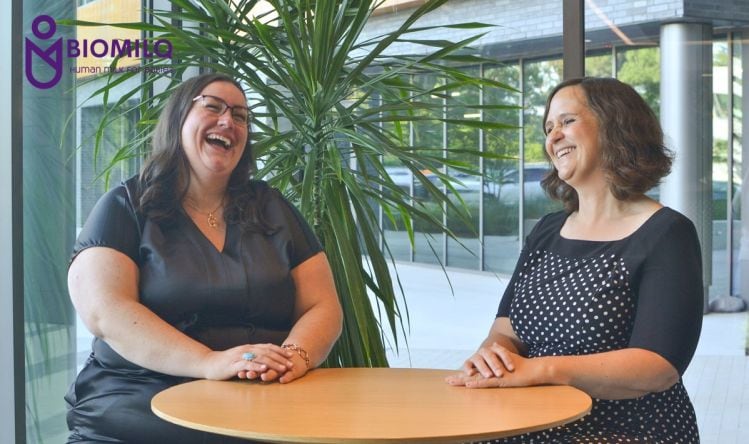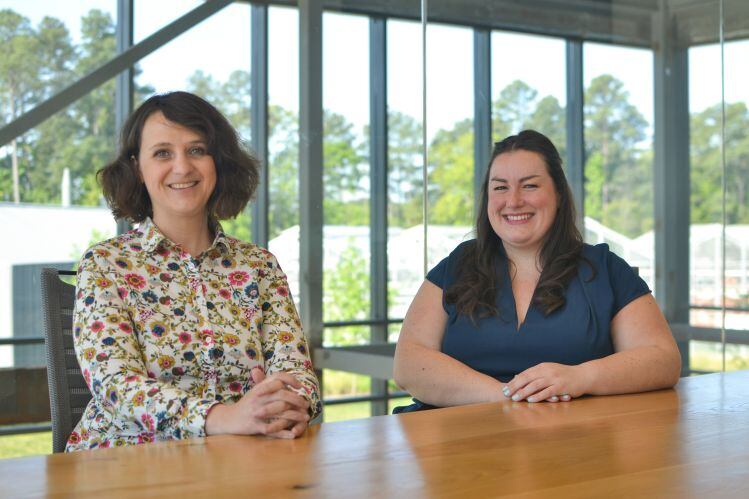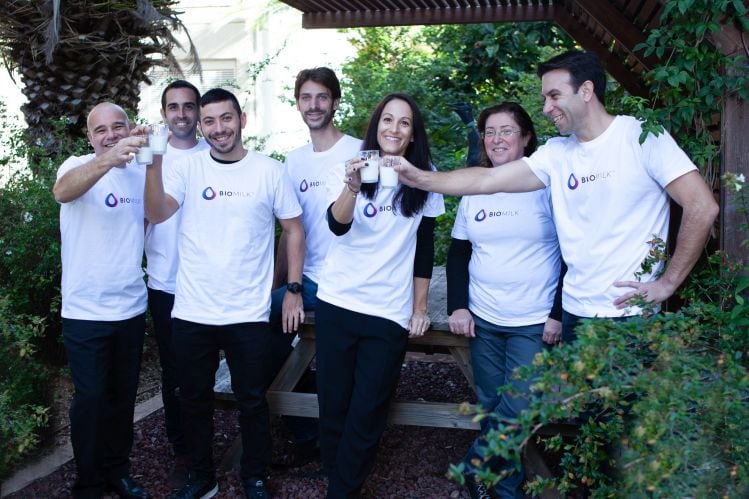BIOMILQ takes cells from human mammary glands, feeds them nutrients so that they proliferate, and then triggers them with a change in the feedstock to differentiate and start producing ‘milk,’ which it stresses is not bio-identical to breastmilk, but is significantly closer to it than any infant formula currently on the market.
The latest funding round – led by Novo Holdings and Breakthrough Energy Ventures, and supported by Blue Horizon, Spero Ventures, Digitalis Ventures, Green Generation Fund, Alexandria and Gaingels - will accelerate process development and optimization.
However, investors understand this is a long game, acknowledged the startup, which has grown from two people to 20+ over the past year, and anticipates “full commercialization over the next four years” as it focuses on bringing whole human milk to market direct to consumer.
'We have a heck of a lot of regulatory work ahead of us'
In a recent call with FoodNavigator-USA, co-founder and CEO Michelle Egger said cell-cultured milk was novel territory for industry and regulators.
“We have a heck of a lot of regulatory work ahead of us... We’re still in discussions with regulators to figure out the right categorization and way to talk about this product. Is this an infant nutrition product, is this a milk product?
“One problem is that breast milk has never been characterized or defined, so we're in a place where our comparator doesn't have its own compositional limits or data points set around it,” added Egger, a food scientist by training who spent the first part of her career at General Mills.
‘We’re a huge step closer to empowering parents with another infant feeding option’
Cell-cultured milk is not designed as a replacement for breastfeeding, but offers a better option than soy- or cow's-milk-based formulas for the four fifths of women who transition to formula before the recommended six-month exclusivity period for breastfeeding, but aren’t always happy about it, says BIOMILQ, which was founded by Egger and Dr Leila Strickland in late 2019.
“We’re a huge step closer to empowering parents with another infant feeding option, one that provides much of the nutrition of breastmilk with the practicality of formula,” added Strickland, a cell biologist who started thinking about whether she could make ‘real’ human milk from cells after struggling to breastfeed.
‘We’re not creating a handful of components like many players in this space…’
Some companies are now engineering yeast or bacteria to produce individual components in breastmilk such as lactoferrin or human milk oligosaccharides (HMOs) that can be added to infant formula.
However, cell-cultured breastmilk potentially gets you much closer to the real thing by replicating the mammalian milk production process (although one industry source in the microbial fermentation field told FoodNavigator-USA that this was “like making a bladder and then asking it to produce urine”).
“We’re not creating a handful of components like many players in this space,” said Strickland [echoing comments from Israeli cell-cultured milk startup BioMilk, which notes that ‘there are 200+ oligosaccharides in breast milk; using fermentation, you can make maybe 10 of these’].
“We believe human milk is a complex biological system and should be brought to the world as a whole milk product that maintains the integrity of it’s incredible evolutionary origin,” she added.
“In our proprietary lactation system, our cells are making numerous HMOs, including those unexplored, such as one that was recently found to correlate with speech acquisition."
'It’s not bio-identical to mother’s milk, we’re not confident it can be'
“But let’s be clear,” added Strickland, if you grow cells in a bioreactor rather than the human body, the inputs - and therefore the outputs - are not going to be exactly the same, as for a start, the cells are not be exposed to all of the components circulating in the mother’s blood, so BIOMILQ’s milk won’t contain immunoglobulins, for example.
“It’s not bio-identical to mother’s milk, we’re not confident it can be. Hormonal changes, baby’s cues, skin-to-skin contact, and environment all affect the dynamic complexity of breastmilk.”
With that said, she added, “The full complement of HMOs and other bioactives in our product will support immune development, microbiome population, intestinal maturation, and brain development in ways that bovine-based infant formula fundamentally cannot.”
'Our unit economics are better than most of those in the cultivated meat space'
If all this is sounding, well, pretty pricey, you’d be (pleasantly) surprised, said Egger, who points out that unlike cell-cultured meat - where the cells themselves are the end product, and manufacturers will have to work out how to grow and feed billions of them cost effectively – BIOMILQ’s cells are mini factories that churn out milk.
Plus, BIOMILQ won’t have to worry about scaffolding, or working with multiple different cell types, while the regulatory pathway may potentially be simpler than it is for cell-cultured meat, she said.
"Our unit economics are better than most of those in the cultivated meat space and our scale up is more achievable, as we're not trying to constantly regrow cells,” said Egger. “Some of the cells we’ve looked at can produce milk for months and months.”
As for growth media costs, she added: “We think we’re in a space where we may be competitive with infant formula at the point that we launch on a retail basis … so mammary cells, at the point where they begin to lactate, they don't require as high of a nutrient burden [as cell-cultured meat], at that point they're really delighted to be able to just be fed, happy and warm, and produce milk.”

“In my opinion, the majority of milk’s value is in its structure function capability. Much of milk is arranged in a manner compositionally advantaged for a human body to be most bioavailable, digestible, and nutritious. By being able to replicate much of that capability outside of the body we are unlocking products that, while not bio-identical to breastmilk, move us closer to better nutrition for all babies on the planet.”
Michelle Egger, co-founder and CEO, BIOMILQ (image credit: BIOMILQ)
'No downstream purification steps are needed'
So what does the bioreactor look like and how does it work?
According to Strickland: “The cells grow in a monolayer and pull in nutrients on one side and push milk out the other side in a way we can extract it, so no downstream purification steps are needed.”
The bioreactor is proprietary, she said, “but essentially we’re trying to get as much surface area as possible, so think of a lot of tubes. Our patent-pending process enables us to produce milk that requires no downstream separation, concentration, or intensive thermal processing.”
“At least 60% of women struggle to breastfeed – the guilt and anxiety associated with this is unimaginable. Current products on the market aren’t able to act as strong substitutes, particularly in the US where the labels are long and can’t truly provide the benefits associated with breast milk. BIOMILQ’s technology will have innumerable benefits – maternal health, both mental and physical, in addition to providing infants with an unmatched nutritional formula substitute.”
Lindsay McCorkle, director, Blue Horizon (which has invested in BIOMILQ)



